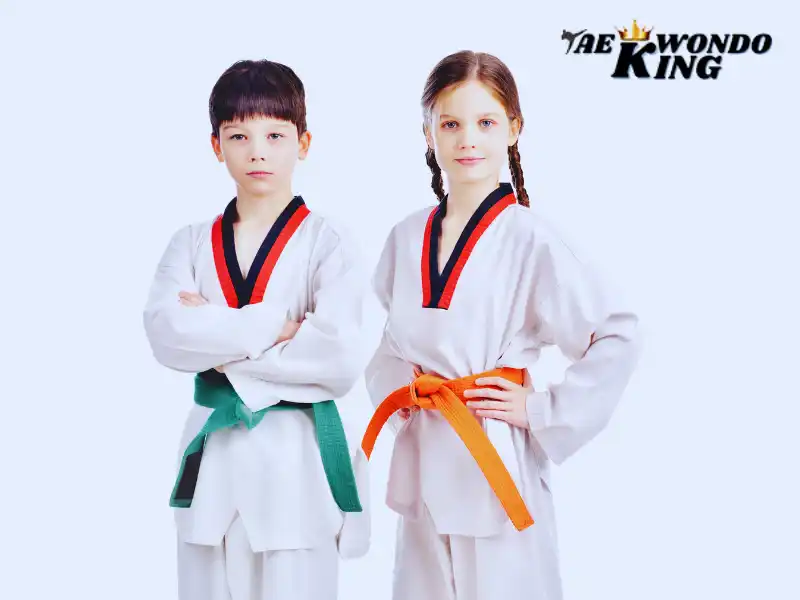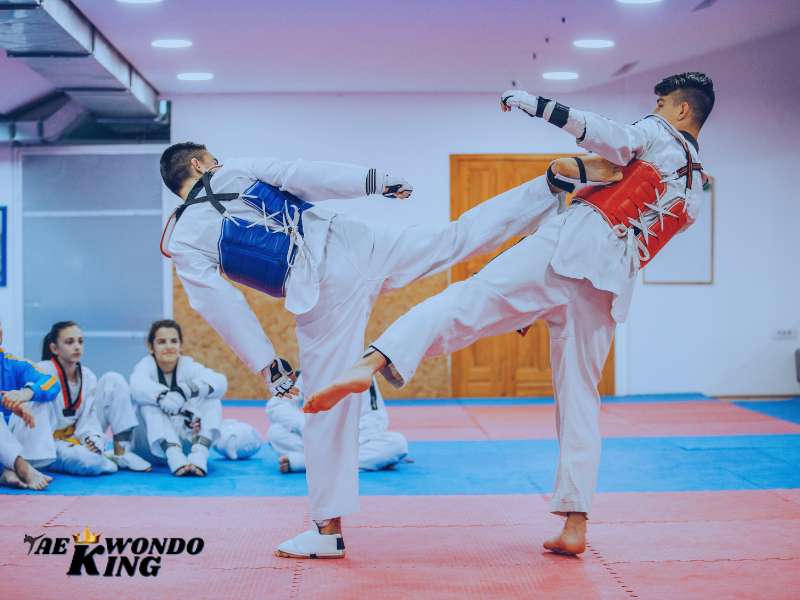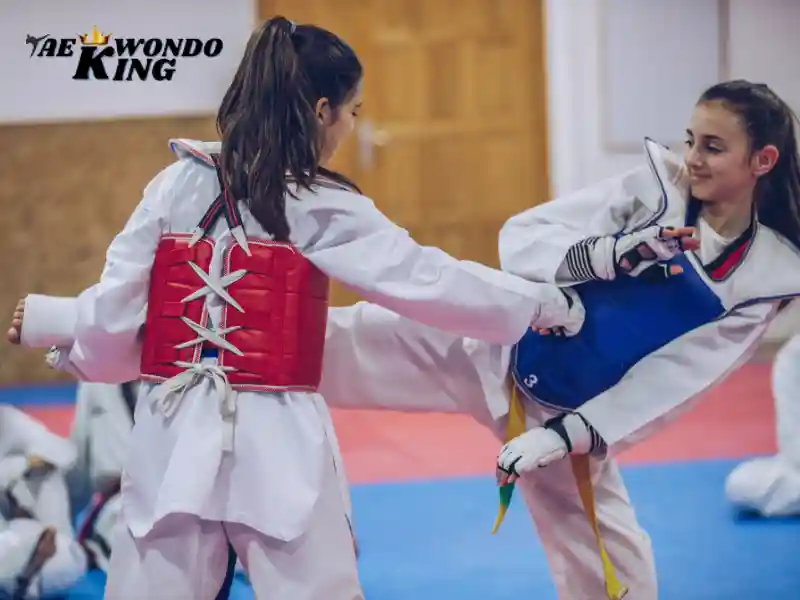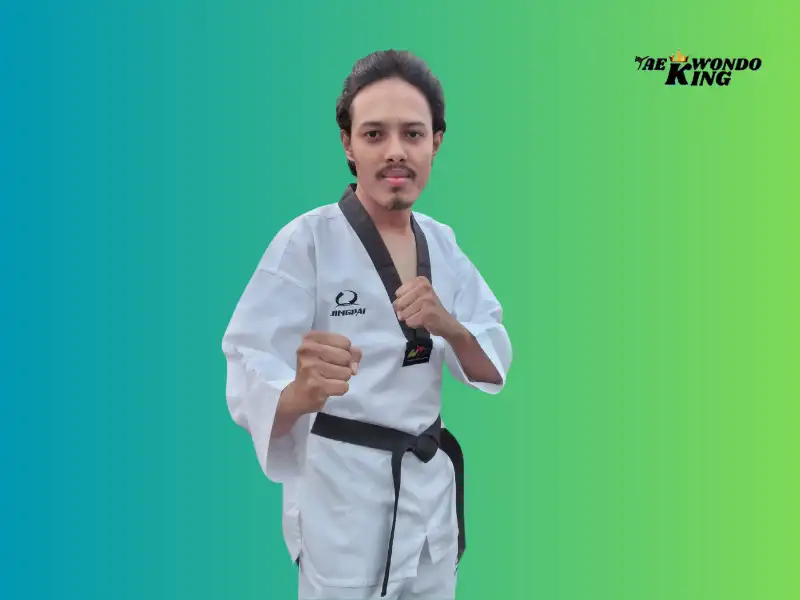
As I sit down to reflect on my journey in Taekwondo, I am reminded of the countless hours spent in the dojang (Rajshahi Taekwondo Dojang), the exhilaration of competitions, the satisfaction of coaching aspiring practitioners, and the honor of officiating matches as a national referee. My name is Ehatasamul Alom, and my path to becoming a Taekwondo martial arts expert has been marked by passion, perseverance, and unwavering dedication. If you aspire to become a skilled martial artist in Taekwondo, it will require significant time, commitment, and determination to reach your objectives. I would be happy to discuss my journey and the steps I took to become an expert in Taekwondo.
When I first began learning Taekwondo, I had no idea it would become such an important part of my life. Over the years, I’ve gone from a curious beginner to an expert in Taekwondo through dedication and hard work. In this blog post, I’ll share my journey and the steps I took to become proficient in Taekwondo. Whether you’re just starting out or already a seasoned martial artist, my story and tips can be helpful on your own martial arts journey.
Early Beginnings and Passion Ignited
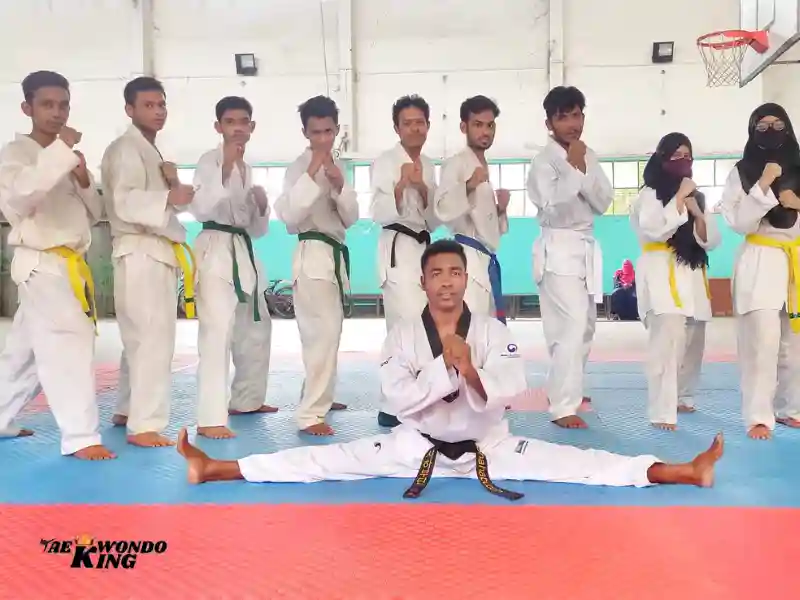
My journey into the world of martial arts began at a young age. Growing up, I was always fascinated by the grace and power displayed by martial artists in movies and television shows. The intricate choreography of their movements and the discipline they exhibited left a lasting impression on me. However, it wasn’t until I attended a local Taekwondo demonstration that my passion for the martial arts truly ignited.
Watching the Taekwondo practitioners perform with precision and skill stirred something within me. I was captivated by the fluidity of their (Bruce Lee, Jackie Chan, Vidyut Jammal) movements, the explosive power of their kicks, and the unwavering focus in their eyes. From that moment on, I knew that Taekwondo was the path I wanted to pursue.
Dedication to Training and Growth
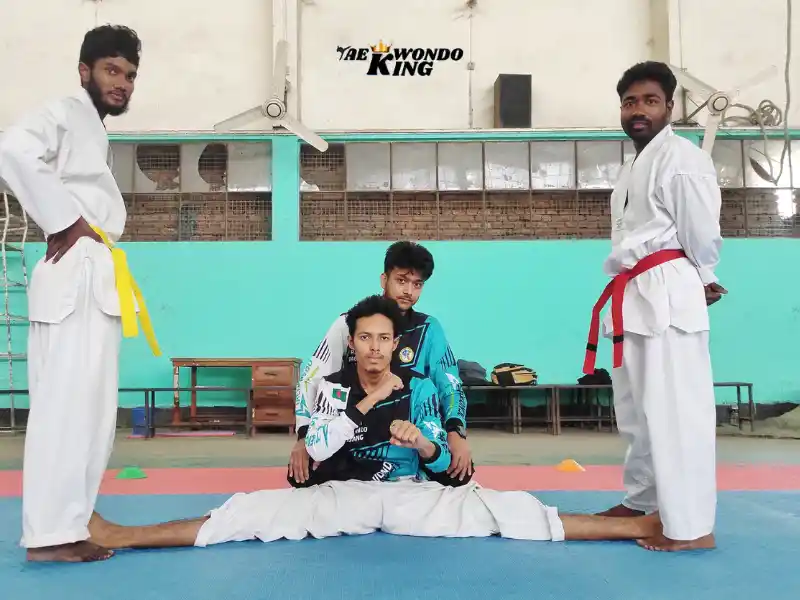
With unwavering determination, I enrolled in a local Taekwondo academy(Rajshahi Taekwondo Dojung) and embarked on my training journey. Under the guidance of seasoned instructors (Mozaffor Hossein Bulu and Mumit Hasan), I immersed myself in the rigorous training regimen of Taekwondo. From mastering basic stances and techniques to honing advanced kicking combinations, every session pushed me to new limits both physically and mentally.
As I progressed through the ranks, earning my belts through hard work and dedication, I began to understand the true essence of Taekwondo. It wasn’t just about learning how to kick and punch; it was about cultivating discipline, respect, and indomitable spirit. Each training session became an opportunity for personal growth, and I embraced the challenges that came my way with enthusiasm.
Competitive Spirit and Achievements
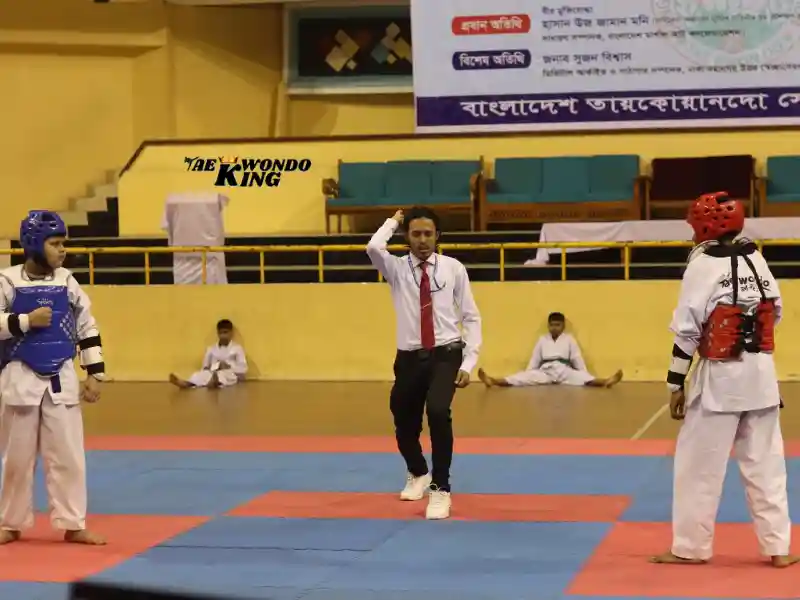
As my skills in Taekwondo continued to develop, I found myself drawn to the competitive aspect of the sport. Competing in tournaments allowed me to test my abilities against practitioners from different backgrounds and styles. The adrenaline rush of stepping onto the mat, the focus required to execute techniques flawlessly, and the thrill of victory fueled my competitive spirit.
Over the years, I had the privilege of representing my country on both the National (Bangladesh National Games – 2015, 2016, 2017, 2018, 2019) and International (Korea Cup – 2019, Kukkiwon Ambasidor Cup – 2019) stages. Competing against some of the best Taekwondo athletes in the world was both humbling and inspiring. Each match taught me valuable lessons about perseverance, sportsmanship, and the importance of mental fortitude.
Transition to Coaching and Mentorship
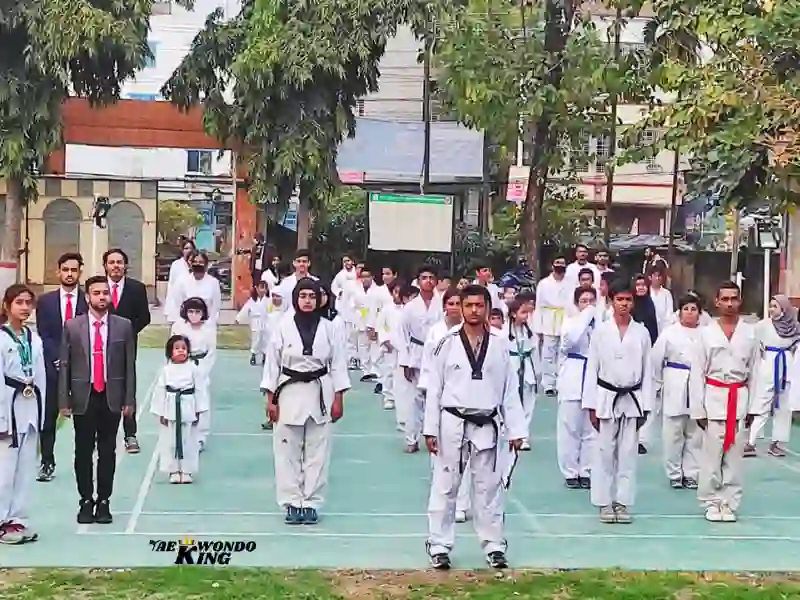
As I continued to excel in my own Taekwondo journey, I felt a growing desire to share my knowledge and expertise with others. My brunch name is Rajshahi Taekwondo Dojang – Co-brunch 03, Transitioning into a coaching role allowed me to give back to the Taekwondo community and inspire the next generation of practitioners. Guiding aspiring athletes through their training journeys, witnessing their progress, and celebrating their achievements brought me immense joy and fulfillment.
As a coach, I emphasized not only the technical aspects of Taekwondo but also the importance of character development and sportsmanship. Instilling values such as perseverance, integrity, and respect in my students was just as important to me as teaching them proper kicking techniques. Seeing them grow not only as martial artists but also as individuals was incredibly rewarding.
Continued Learning and Mastery
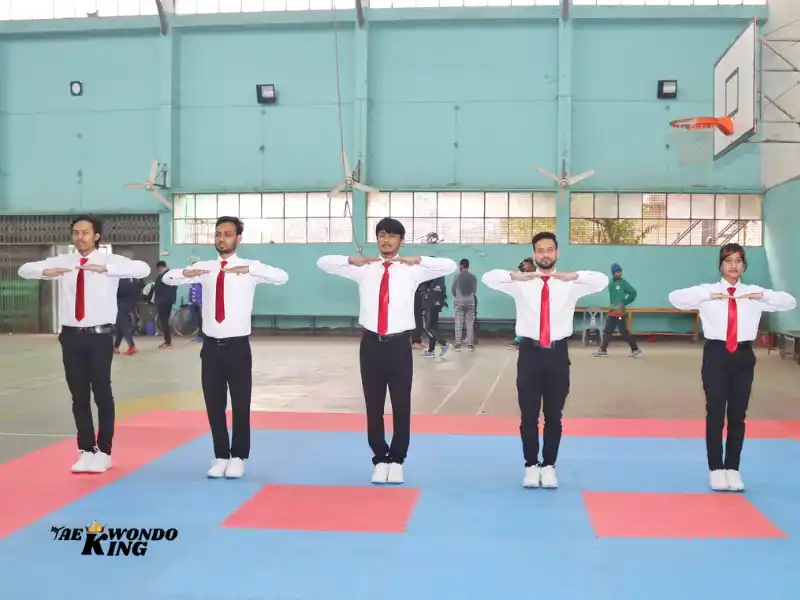
Despite achieving success as a competitor and coach, my journey in Taekwondo is far from over. As a lifelong student of martial arts, I am committed to continuous learning and self-improvement. Attending seminars, training camps, and workshops allows me to stay updated on the latest developments in Taekwondo and refine my skills as both a practitioner and instructor.
Earning my 3rd Dan Black Belt was a significant milestone in my Taekwondo journey, but I understand that true mastery is a never-ending pursuit. Whether I’m refining my techniques, studying the philosophy of martial arts, or mentoring the next generation of Taekwondo practitioners, I approach each day with a sense of humility and gratitude for the opportunities that Taekwondo has afforded me.
How do you become a Professional Taekwondo Player?
Becoming a professional Taekwondo player requires years of dedicated training, discipline, and commitment. You can start by finding a reputable Taekwondo school and enrolling in classes to learn the fundamentals and techniques of the sport. Regular practice and setting clear goals for improvement are essential.
Competing in local and regional tournaments can help you gain experience and showcase your skills. Seeking guidance from experienced coaches and mentors will also help you develop your abilities and compete at a higher level. It’s important to stay focused, and dedicated, and never give up on your dreams of becoming a professional Taekwondo player.
Conclusion
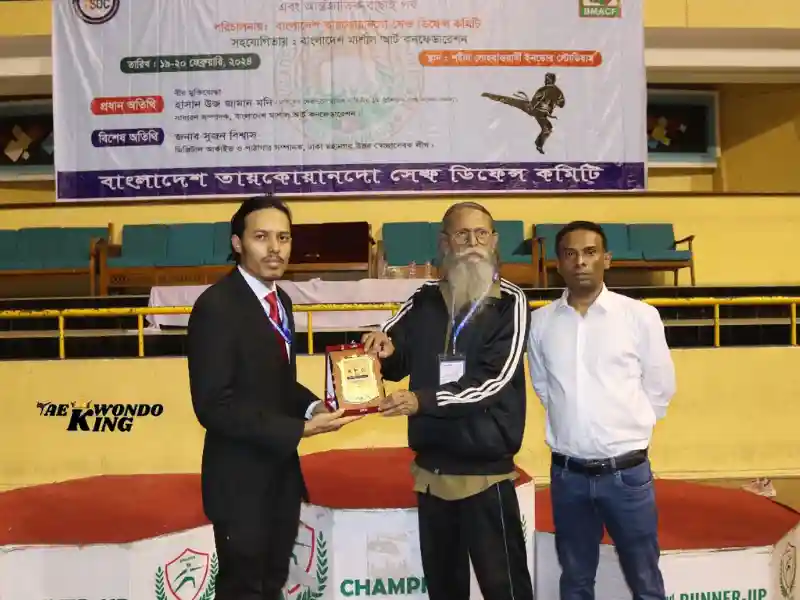
My journey to becoming a Taekwondo martial arts expert has been a testament to the power of passion, perseverance, and dedication. From humble beginnings as a wide-eyed beginner to the accomplished practitioner, coach, and national referee that I am today, Taekwondo has shaped every aspect of my life in profound ways.
Through the highs and lows, victories and defeats, Taekwondo has been my constant companion, guiding me on a path of self-discovery, personal growth, and fulfillment. As I continue to walk this path, I am grateful for the lessons learned, the friendships forged, and the memories made along the way. And though the journey may be long and challenging, I am confident that with perseverance and determination, the possibilities in Taekwondo are endless.
FAQ
How do you become an Expert in Taekwondo?
To become an expert in Taekwondo, it’s important to dedicate yourself to consistent practice and training. Focus on mastering the fundamental techniques and principles of martial arts. Seek guidance and instruction from experienced instructors and practitioners to continuously improve your skills. Studying the history and philosophy of Taekwondo can provide valuable insight and perspective on the discipline. With dedication and commitment, you can become an expert in Taekwondo.
How do you become a Taekwondo Pro?
To become a professional in Taekwondo, it is essential to start by finding a qualified instructor or school that specializes in martial arts. Regular training and practice are crucial, as consistency and dedication are key to mastering the techniques and skills. It’s also important to focus on building strength, flexibility, and agility, as these are essential for effective performance. Progressing through belt levels and participating in competitions will help me gain experience and improve my skills. Remember, becoming a Taekwondo pro takes time, patience, and hard work.
How do you become a Martial Arts Expert?
Becoming a Taekwondo Martial Arts Expert requires a significant investment of time, dedication, and hard work. It’s essential to find a reputable instructor or school to learn from and commit to consistent practice. Setting clear goals and maintaining discipline in training are crucial for mastering martial arts. Gaining knowledge about the history and philosophy behind the art can enhance your understanding and skill. With patience and perseverance, anyone can achieve expertise in martial arts.
How do I get better at Taekwondo?
To improve in Taekwondo, it’s important to consistently practice and set specific goals for yourself. Focus on improving your technique, strength, flexibility, and endurance. Seek guidance from experienced instructors and be open to constructive feedback. Remember that progress takes time, so be patient and stay committed to your training.
How much do Taekwondo Fighters get paid?
The pay for Taekwondo fighters can vary widely depending on their level of experience, competition success, and endorsements. Professional fighters may earn income from competition prize money, sponsorships, and teaching classes. However, for many fighters, especially those just starting, income from Taekwondo may not be their primary source of financial support.
Can you make Money from Taekwondo?
Yes, it is possible to earn money from practicing Taekwondo. There are various opportunities for individuals to make money from their skills in Taekwondo, including teaching classes, coaching at tournaments, competing in professional events, and securing sponsorships and endorsements. Some practitioners also generate income by selling Taekwondo-related merchandise, such as training equipment and apparel.
Can Taekwondo be a Career?
Yes, Taekwondo can be a career for those who are dedicated and passionate about the sport. Many people have found success as professional athletes, coaches, instructors, and even as business owners running their own martial arts schools. It takes hard work, determination, and a strong understanding of the sport to turn Taekwondo into a successful career. With the right training and opportunities, it is possible to make a living in the world of Taekwondo.
What is needed to learn Taekwondo?
If you’re interested in learning Taekwondo, it’s important to be dedicated, persistent, and disciplined. Taekwondo requires both physical and mental strength, as well as a desire to learn and grow. Finding a qualified instructor and a suitable training facility is essential to getting started. You’ll also need the right equipment, like a uniform and protective gear, to ensure a safe and productive training experience.
How many years does it take to finish Taekwondo?
On average, it takes around 3-5 years to earn a black belt in Taekwondo. However, the exact timeframe can vary depending on how frequently you train and the requirements of your specific Taekwondo school or organization. It’s important to remember that progress in martial arts is not just about reaching a specific belt rank, but also about personal growth and development.

Founder, Owner, and CEO of TaekwondoKing.
He is one of the top 100 martial artists in the World and among the top 20 referees in Bangladesh.
Ehatasamul Alom is an esteemed Kukkiwon Certified Taekwondo 3rd Dan Black Belt with over 15 years of experience in this dynamic martial art. Born in Rajshahi, Bangladesh, Ehatasamul’s journey with Taekwondo began at the tender age of seven. His passion led him to compete at national and international levels, where he has bagged numerous awards and honors. He is also a member of the Taekwondo National Referee Panel.
With a Bachelor’s degree in Sports Science from the prestigious Rajshahi University, Ehatasamul has a deep understanding of the technical and scientific aspects of martial arts and some other martial arts.
In 2022, Ehatasamul created the “TaekwondoKing.com” to share his knowledge, Free Resources, Values, and Real experiences. His articles focus on Taekwondo training techniques, competition strategies, Sport Products Reviews, and the art’s rich history and philosophy. He also writes about the importance of mental fortitude and discipline, key aspects of his teaching philosophy. He has already launched many sports, Taekwondo, and health-related Free online tools. His goal is to inspire both beginners and seasoned practitioners worldwide through insightful and engaging content.
If you need any help, contact Ehatasamul Alom at any time.

